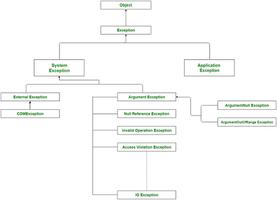自适应和非自适应路由算法的区别
您有没有想过路由器如何为我们执行各种任务?例如,在 Internet 上搜索某些内容或获取某些数据时,路由器会执行某些功能。与我们在日常生活中一样,有不同的方式来完成相同的功能。同样,路由器也有不同的方式将数据包传送给我们。两种这样的方式是 -
自适应或动态路由算法,以及
非自适应或静态路由算法。
自适应和非自适应路由算法之间的差异
下表突出显示了自适应和非自适应路由算法之间的主要区别 -
| 自适应路由算法 | 非自适应路由算法 |
|---|---|
| It is used when more importance is given to the data being transported than the speed it takes to deliver it. | 当更重视传输数据的速度时使用它。 |
| Finds the path suitable for transporting by analysing the network congestion and the nodes taking part in it. | 不会自动找到路径。网络管理员分配它。 |
| Data delivery can be slow because of the processing time taken to find the best route with less traffic. | 数据的传递比自适应路由算法更快,因为系统可以保存用于处理算法以找到最佳路由的类型。管理员找到的路由在网络流量方面可能不是最好的。 |
| Sometimes, there will be more usage of software and hardware in this type of routing. So, the admin must supply it, increasing the expense of system components. | 软件和硬件使用较少,因为系统没有通过处理找到最佳路线。 |
| It is less secure compared to Non Adaptive routing because it needs more information about the network topology to work on it and find the best route. | 它比自适应路由算法更安全,因为该算法不需要有关网络拓扑的更多信息。 |
| It reduces the work of the admin by partially automating the process. The admin doesn't want to add each route manually to the routing table. | 管理员手动分配路由来传输数据包是一项繁忙的工作。 |
| The system admin can have some less knowledge about the network topology as the algorithm is automated. | 系统管理员应该非常了解用于传输的系统,以便手动分配路由。 |
| It is divided into Centralized algorithm, Isolation algorithm and Distributed algorithm. | 它们有两种类型 -泛洪和随机游走。 |
| It is more complex than Non Adaptive routing algorithm. | 它不如自适应路由算法复杂。 |
以上是 自适应和非自适应路由算法的区别 的全部内容, 来源链接: utcz.com/z/347532.html







